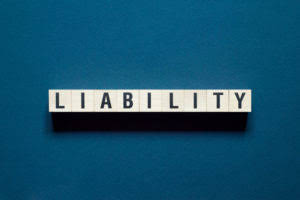
Let’s take a closer look into what a stale-dated cheque is and how they work. There are a few ways to determine if a check is stale, whether you got it or wrote it. The eRoutingNumber™ database Includes All ABA Routing Numbers in the United States, as well as the bank website in many cases. The eRoutingNumber™ database also contains the bank phone number and best number to call for check verification.

Streamline your accounting and save time
It may be too old to be processed by a bank, credit union, or stale dated checks meaning other financial institution. A stale check is also referred to as a “stale-dated check” or an “expired check.” The length of time that a check is considered to be valid may vary from state to state. Also, the issuers of checks sometimes note a time limit on their checks’ validity on the face of the check. If you forgot to deposit a check and it’s been more than six months since you received it, it might be considered stale.

What Is a Stale Check?

These checks are returned to the bank and the issuer is charged a fee as a penalty. In some situations, the recipient can also be charged a fee in addition to having to refund the deposit. With a stop payment notice, the bank employee who is responsible stale dated checks for handling your accounting transactions ensures that the check becomes void. It prevents the other business owner who is on the client-side of the table from cashing old and new checks, thereby maintaining transparency in the business. A stale check is a check that remains undeposited or uncashed long after the date on which it was issued.
Unclaimed property and escheatment laws

Routing Number Results are Updated Daily from the eRoutingNumber™ Database. This database includes exclusive data, not offered by other sources, like Fake Routing Numbers, and the Fraction Code or Fractional Routing Number found on the face of printed ledger account checks.. With Resourceful Finance Pro arriving in your inbox, you will never miss critical stories on accounting, benefits, payroll & employment law strategies. Including a memo on your cheque isn’t always necessary, but it can be helpful. It can contribute to better bookkeeping and accounting processes by keeping everything organized.
- At this point, the check is not cashable, and you must file a claim directly with the state to recover it.
- Any user can report a routing number missing, invalid, or provide details not included.
- It may be too old to be processed by a bank, credit union, or other financial institution.
- A check from a state government is generally valid for six months to a year, though that can vary by state.
- Or you might reach out to your own bank and the bank that issued the check to hear their policies on stale checks.
- Depending on the circumstances, a bank may refuse to honor the check and will not allow the person to deposit or cash the check.
- The only exception to stale-dating may be a certified check, which must be honored, even after 180 days.
And sometimes you might need to write a cheque to or receive one from a vendor for payment. – If they do, offer to write a new check but get the old one back first or stop payment to avoid surprise fees. – If you’re the one who wrote the check and it has yet to be cashed, check with the recipient to see if they still plan to cash it.
- Escheatment is the process by which banks and other financial institutions turn over unclaimed property to the government.
- Basically, including your signature is giving permission for the recipient to cash it.
- Hence, an employer must be very cautious about issuing checks for different departments including payroll and other business areas.
- ✝ To check the rates and terms you may qualify for, SoFi conducts a soft credit pull that will not affect your credit score.
- Understanding how they work can let you avoid paying extra fees and will only benefit your accounting processes.
States Bookkeeping for Chiropractors have different rules about when businesses must report unclaimed property, and the period before checks are considered unclaimed can vary. The Securities and Exchange Commission (SEC) suggests it’s often around five years, but it’s crucial to check your state’s laws to ensure that it is equal to that. The National Association of Unclaimed Property recommends sending a formal letter to business owners warning them that their property may become unclaimed. If informing the business owner doesn’t work, the state will step in, holding the account as a bookkeeping entry. In basic terms, a check becomes stale if it has been in one’s possession for 180 days or more and has not been cashed or deposited.
- Consider the type of unclaimed property you could potentially have and investigate the state dormancy period for each.
- Thankfully, mobile deposit and other technological advances have helped make depositing checks a quick and simple process.
- Some banks may do it, but they may charge a fee for depositing or cashing a stale check that is older than 6 months.
- The best thing that you can do is keep track of all the cheques you have issued, and make a note of whether or not they have been cashed or not.
- In this situation, a check will be returned for deposit at a later date when the funds might not be available.
- A stale check is a check that remains undeposited or uncashed long after the date on which it was issued.
- Typically, accounts are frozen if checks have been stolen or there is other possible fraudulent activity, but a person can always ask to have their account frozen.
What are a bank’s obligations with respect to stale checks?
- If you do find an old check that was issued many months or years ago, it’s probably best to not just deposit it.
- A check is usually payable at the time it is negotiated or presented to a bank for deposit or cash.
- Cashing a check promptly ensures that you can access the funds without issues, such as the check bouncing or having it go stale.
- Make sure you check with your bank, as not all financial institutions offer stop payments.
- A person should know how long they have to cash or deposit the check before it becomes too old.
- A stop payment informs your bank that you do not want the check cashed and essentially voids the check.
Your financial institution will most likely charge a non-sufficient funds fee if you don’t have enough funds in your account. While cheques aren’t as common today as they once were, it’s still worth knowing some of the different types. Understanding how they work can let you avoid paying extra fees and will only benefit your accounting processes. You draw this cheque against your account and you have the bank guarantee the cheque. Once it’s certified, your bank will back the cheque writer or issuer as genuine. This means that they know that you are going to have enough funds in your account to cover the overall cost of the cheque that’s getting sent.
